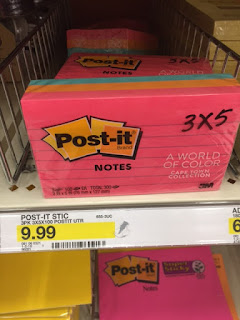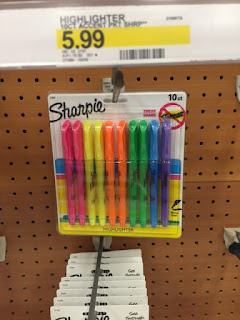Personally, this is not an editing process I would have ever considered. I am typically a fast and concise writer.. It's never been something I've struggled with. This is not to say that I am a perfect writer or that I couldn't implement a better editing system for myself, just simply... that it is not one I consider necessary for myself. I did not enjoy hearing what I had written read aloud on the computer.
I remember, though, as a child, reading what I had written to my parents or them reading it to me and understanding the importance of this phase of the editing process. Hearing what you have written really enables you to understand the importance of complete sentences and punctuation.
I do believe that text-to-speech editing is a major milestone in the editing process. It shows that we have officially made a digital leap and that the majority of papers are being written on computers, not paper, and are able to qualify to utilize a text-to-speech app/feature on a word processing system.
For children, I think this is especially unique and wonderful as they are so interested in technology. In the article "Look What I Did!," you really see the strengths of using this editing process. Hearing what you have written is so different than simply reading it off the page.. The eye can miss certain mistakes or skim over important missing information (punctation, run-on sentences, etc). Listening to what you've written, however, you are able to HEAR the errors.
& (2013). “Look What I Did!”: Student Conferences With Text-to-Speech Software. The Reading Teacher, 00(0), 000–000. doi: 10.1002/TRTR.1196
Sunday, January 31, 2016
Auto Replace (Text to Graphic)
I really liked this activity.. I love the idea of using it for younger kids -- I will definitely use this in my classroom for colors, letters, their names, shapes! :]
PaperRater
http://www.paperrater.com/ticket/598159fc8aa871e-f6e554c8820cb7c0b4655ddf74934d52?print=true
PaperRater Summary.. Overall 86%/B.
PaperRater Summary.. Overall 86%/B.
Monday, January 18, 2016
Low Tech Writing Kit
Store of choice, always.
Dry erase board, printed with lines. Although a black dry erase would work similarly. Used for teaching proper sizing and spacing of letters (blank would be for an even earlier learner of letters; could use to write letters any size)
Necessary for above. :] Obviously, there are tons of brands/colors, not limited to just this pack.
Could be used for writing letters (student use) or labeling classroom materials for further literacy (teacher use).
Colorful/character themed notebooks -- to make writing tools more exciting and fun, even kid-friendly depending on age group.
Used for tracing (teacher writes letters/name/numbers in highlighter, student uses pencil to trace over) or for highlighting sight words, letters in a search-and-find manner or simply just for a fun new writing tool.
For note taking, handwriting practice.. Again, tons of options on brands/colors.
See above comments.
These are a little thicker than the previous pencils and are multi-colored. Fun for young learners.
Writing, drawing, grip control.
Variety/character oriented specialty packs of crayons might make "writing work" more fun.
Individualized by color. Perhaps the student has a favorite that you allow for writing.
Variation on white board.
Stamps to use for letter recognition, simple multiple choice answers on tests.
Other materials might include: chalkboards/chalk, pencil grips, raised lined paper, dry erase crayons, letter stickers (which come in a variety of sizes and colors), shaving cream (for young learners to be able to trace letters with fingers or pencils), colored pads of paper (instead of the "boring" white).
I am a VPK teacher so my tendencies leaned toward the young learner: children who are just learning how to write their letters, numbers, names.. But several of these materials could be used with older age groups, even college students, to make note taking and studying easier.
AutoSummary
Summary of Pride & Prejudice:
- Bennet," replied his wife, "how can you be so tiresome! You must know that I am thinking of his marrying one of them." "Is that his design in settling here?" "Design! Nonsense, how can you talk so! But it is very likely that he MAY fall in love with one of them, and therefore you must visit him as soon as he comes." "I see no occasion for that.
- Bingley will be very glad to see you; and I will send a few lines by you to assure him of my hearty consent to his marrying whichever he chooses of the girls; though I must throw in a good word for my little Lizzy." "I desire you will do no such thing.
- Morris immediately; that he is to take possession before Michaelmas, and some of his servants are to be in the house by the end of next week." "What is his name?" "Bingley." "Is he married or single?" "Oh! Single, my dear, to be sure! A single man of large fortune; four or five thousand a year.
- It is a truth universally acknowledged, that a single man in possession of a good fortune, must be in want of a wife.
- Bennet was so odd a mixture of quick parts, sarcastic humor, reserve, and caprice, that the experience of three-and-twenty years had been insufficient to make his wife understand his character.
- When a woman has five grown-up daughters, she ought to give over thinking of her own beauty." "In such cases, a woman has not often much beauty to think of." "But, my dear, you must indeed go and see Mr.
- However little known the feelings or views of such a man may be on his first entering a neighborhood, this truth is so well fixed in the minds of the surrounding families, that he is considered the rightful property of some one or other of their daughters.
- Long says that Netherfield is taken by a young man of large fortune from the north of England; that he came down on Monday in a chaise and four to see the place, and was so much delighted with it, that he agreed with Mr.
- But you are always giving HER the preference." "They have none of them much to recommend them," replied he; "they are all silly and ignorant like other girls; but Lizzy has something more of quickness than her sisters." "Mr.
- Bingley when he comes into the neighborhood." "It is more than I engage for, I assure you." "But consider your daughters.
- Bennet," said his lady to him one day, "have you heard that Netherfield Park is let at last?" Mr.
- Indeed you must go, for it will be impossible for US to visit him if you do not." "You are over-scrupulous, surely.
**Used Tools4Noobs.com/summarize/**
Threshold = 30
Minimum Sentence Length = 20 characters
Minimum Word Length = 4 Characters
Friday, January 15, 2016
CHECK Strategy
Knowing
how to spell (or spellcheck) words, on your own, without automated programs
like Microsoft's spellchecking or iPhone’s autocorrecting, is so
important.
I
think that writers (be that an early elementary student or a novelist) need to
be able to spell; phonetics are fundamental to this process. As children,
knowing the letter sounds would definitely improve spelling (as described in
the BlackBoard text) IF the word they are trying to spell is phonetically
correct.. The trick to this is, of course, the thousands of complications and
“exceptions” in the English language to phonetic sound. With the CHECK
Strategy, though, children could get close enough to the correct spelling —
with use of phonics.
Automated
spellchecking and “autocorrecting” are so common now, though, and with the
ever-growing popularity of technology and devices (iPhones, tablets) a lot of
kids probably don’t understand the importance of this basic skill — knowing
letter sounds, knowing how to sound out a word, knowing how to correct their
errors in spelling. The reality is that spellcheck and autocorrect are both
susceptible to failing the writer. These automated programs don’t catch
everything, especially if the writer isn’t able to spell in the most basic
sense; these programs will not be able to “fix” the word if it’s not at all
close to the target word. They don’t catch homophones, words that are truly words
(an instead of can), words that are double typed (ex: the man man drove to
work) or words that aren’t typed at all (ex: the drove to work). Automated
programs also make us as writers lazy and don’t enhance or develop our skills (Winter-Hebert, "8
Reasons Why You Shouldn’t Just Rely On SpellCheck”).
According
to an article from 2005, "one study reported that spell checkers usually
catch just 30 to 80 percent of misspellings overall (partly because they miss
errors like here vs. hear), and that spell checkers identified the target
word from the misspellings of students with learning disabilities only 53
percent of the time" (Moats, “How Spelling Supports
Reading").
There
is also an obvious tie from spelling to reading. Again, letter sound
knowledge is important.
It’s
great that we have advanced technologically and that spellchecking programs
even exist, but, I believe, there’s no better “check” than re-reading your
work (or having someone else read you work).
Resources:
Moats,
L. (2005). How Spelling Supports Reading. Retrieved January 16, 2016, from
http://www.readingrockets.org/article/how-spelling-supports-reading
Winter-Hebert,
L. (n.d.). 8 Reasons Why You Shouldn’t Just Rely On SpellCheck. Retrieved
January 16, 2016, from http://www.lifehack.org/articles/communication/10-reasons-why-you-shouldnt-just-rely-spellcheck.html
Thursday, January 14, 2016
Subscribe to:
Posts (Atom)

















